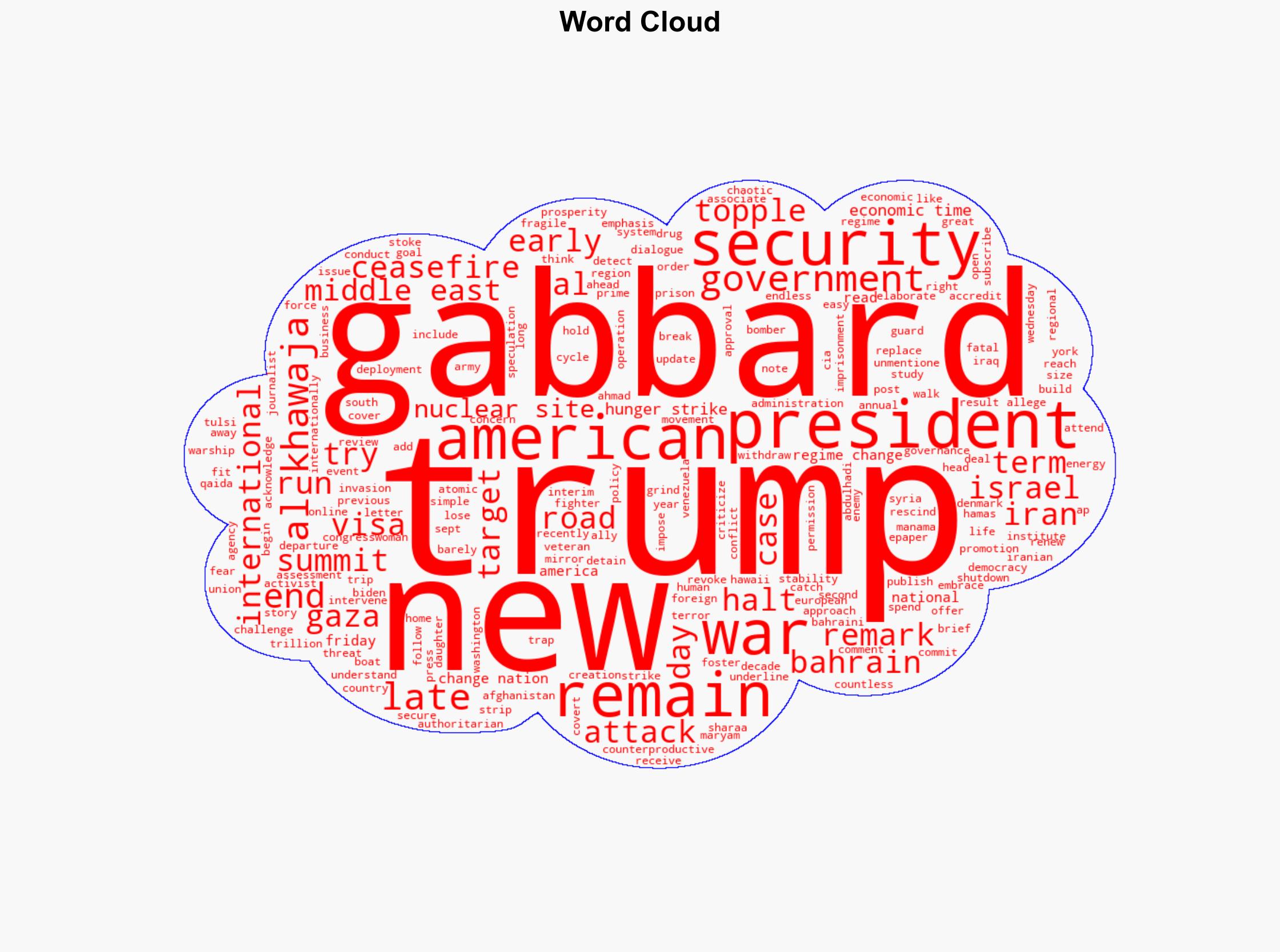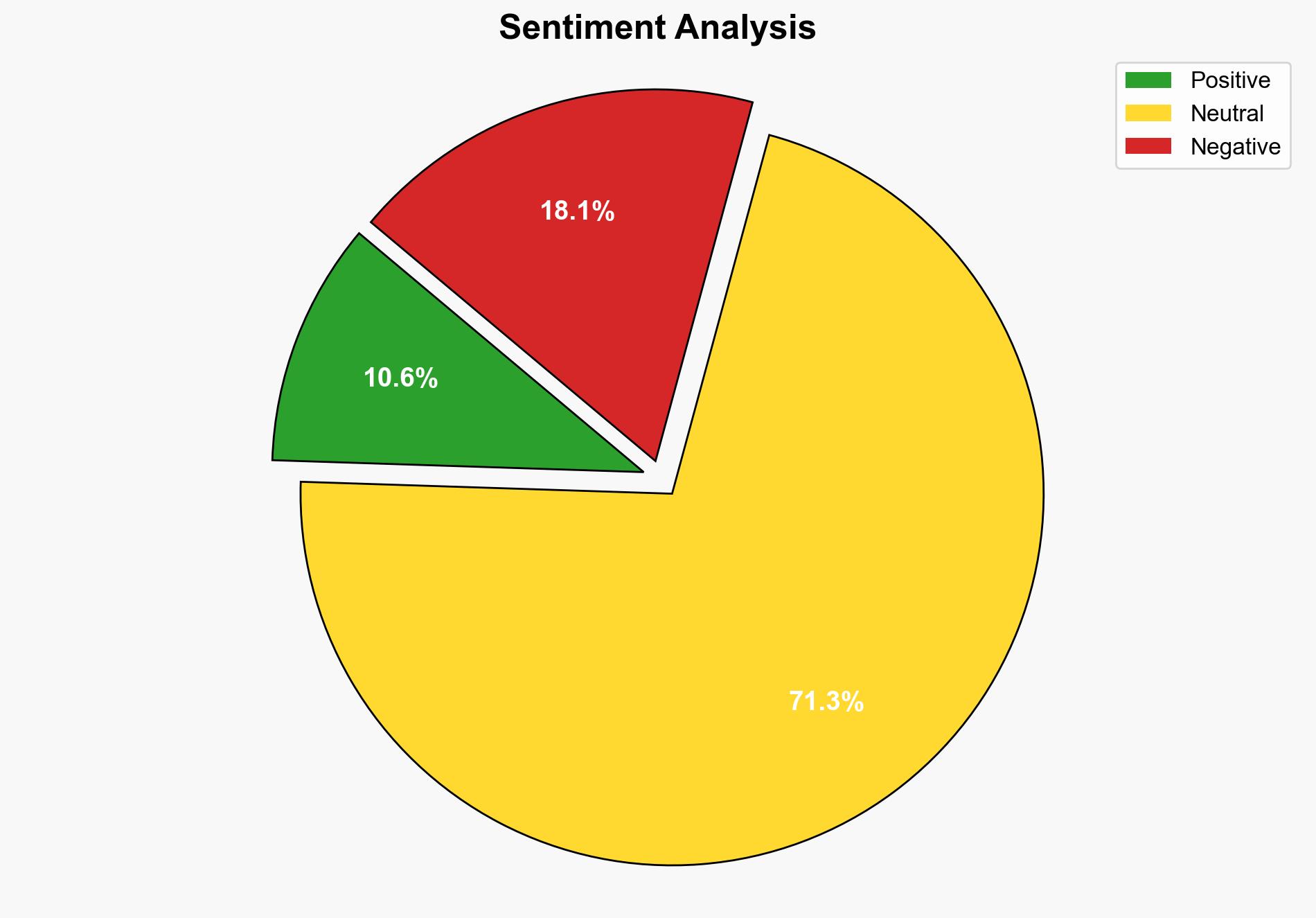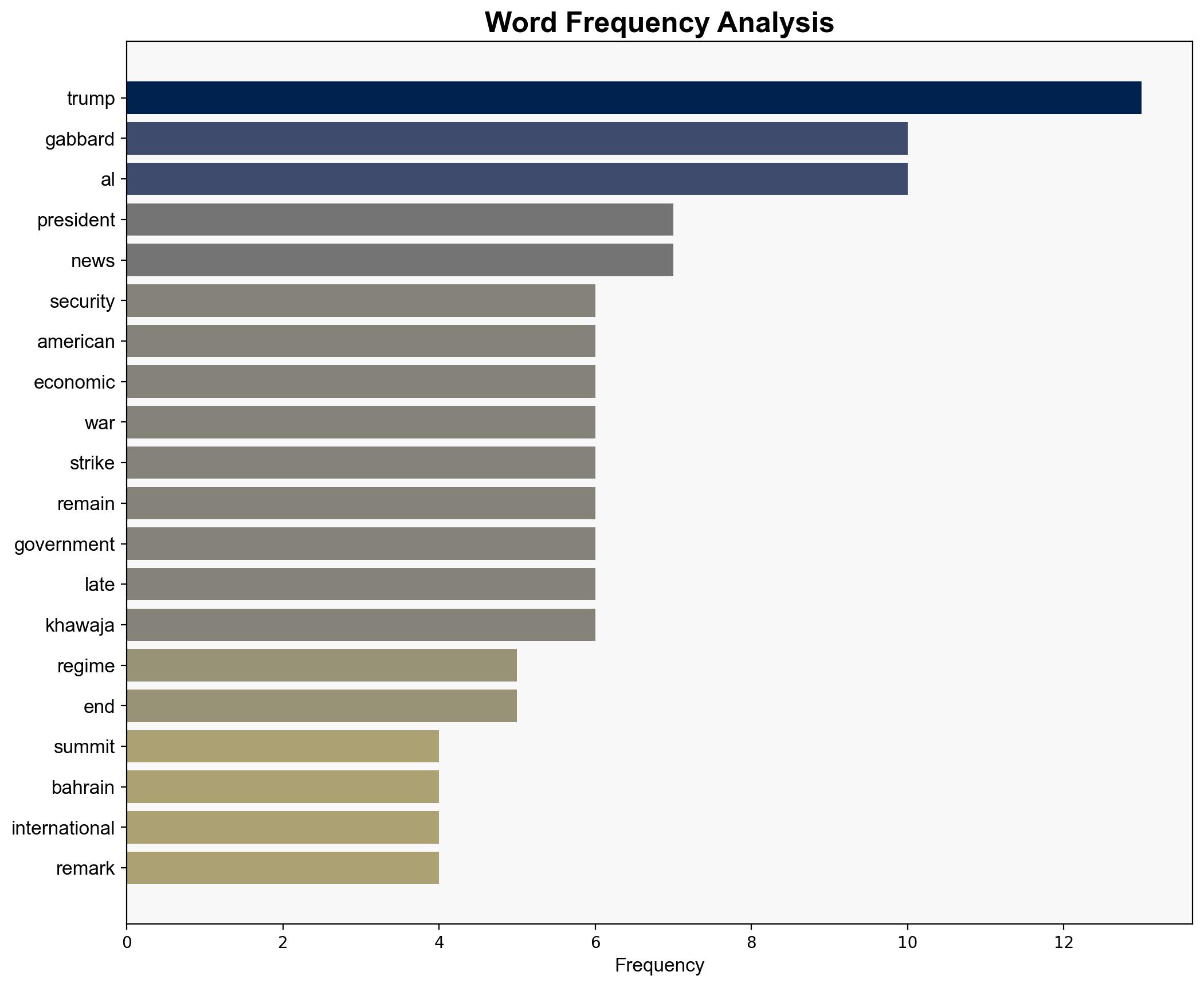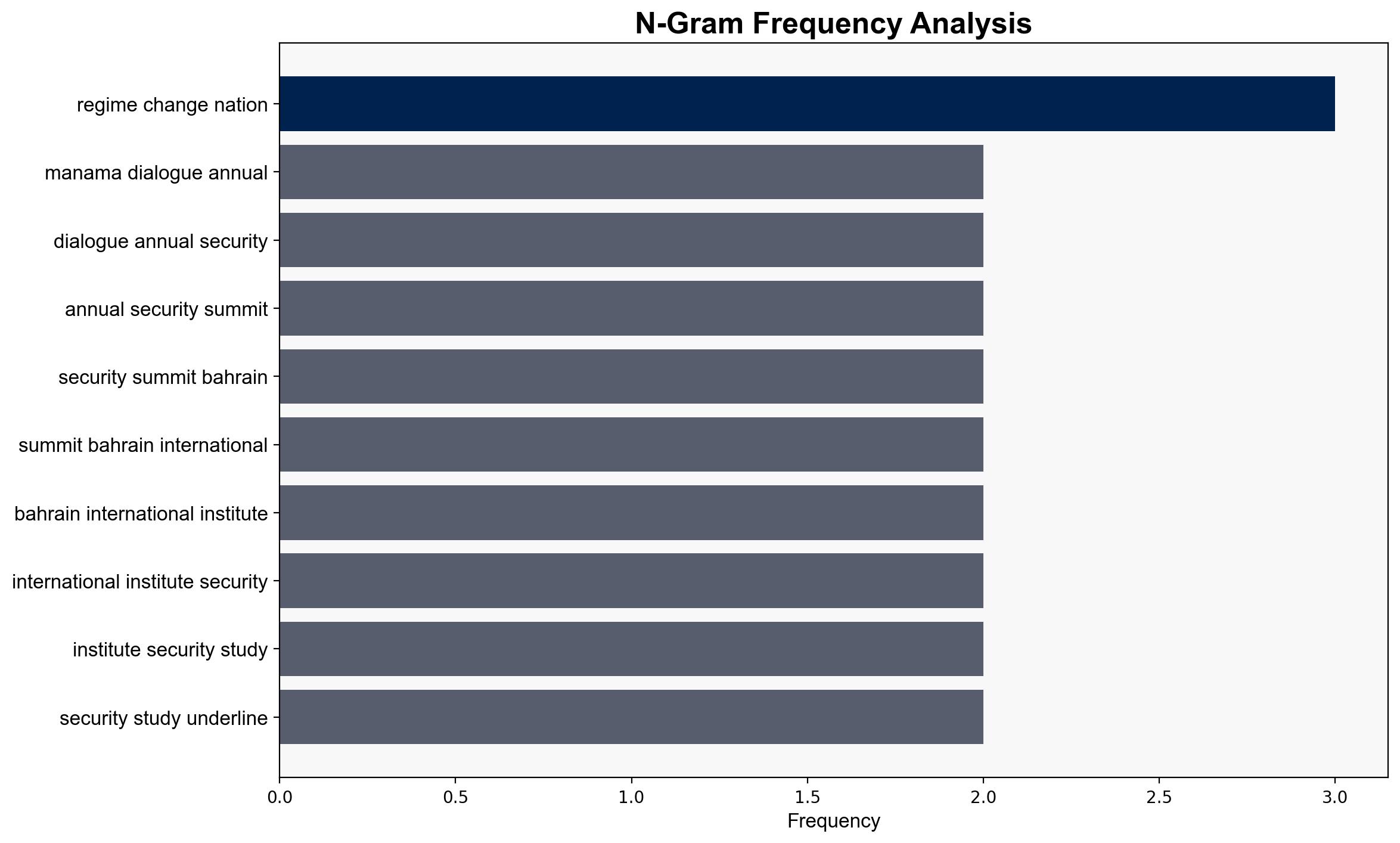US national intelligence director says former American strategy of ‘regime change’ is over under President Trump – The Times of India
Published on: 2025-11-01
Intelligence Report: US national intelligence director says former American strategy of ‘regime change’ is over under President Trump – The Times of India
1. BLUF (Bottom Line Up Front)
The strategic judgment is that the US has shifted its foreign policy focus from regime change to economic prosperity and regional stability under President Trump. The most supported hypothesis is that this shift is genuine and reflects a strategic realignment. Confidence level: Moderate. Recommended action is to monitor the implementation of this policy shift and assess its impact on regional stability and US interests.
2. Competing Hypotheses
1. **Hypothesis A**: The US genuinely intends to abandon regime change strategies in favor of promoting economic prosperity and regional stability. This is supported by statements from national intelligence and policy shifts observed in the Middle East.
2. **Hypothesis B**: The declaration of abandoning regime change is a strategic deception to reduce international scrutiny and opposition while covert operations continue. This is suggested by ongoing military activities and covert operations in regions like Venezuela.
3. Key Assumptions and Red Flags
– **Assumptions**: Hypothesis A assumes a coherent and consistent policy shift across all US government branches. Hypothesis B assumes that covert operations are a primary tool for achieving US objectives.
– **Red Flags**: The lack of detailed policy documentation supporting the shift, and continued military presence and operations in conflict zones, could indicate inconsistency.
– **Blind Spots**: Potential underestimation of internal US political dynamics that may influence foreign policy direction.
4. Implications and Strategic Risks
– **Economic**: A focus on economic prosperity could lead to increased US investment in the Middle East, potentially stabilizing volatile regions.
– **Geopolitical**: Abandoning regime change might reduce tensions with countries like Iran, but could embolden authoritarian regimes.
– **Psychological**: Allies and adversaries may question US commitment and reliability, affecting long-term alliances.
5. Recommendations and Outlook
- Monitor regional responses to US policy shifts to gauge the effectiveness of the new strategy.
- Engage in diplomatic dialogues to clarify US intentions and reassure allies.
- Scenario Projections:
- Best: Regional stability improves, leading to economic growth and reduced conflict.
- Worst: Perceived US withdrawal emboldens adversaries, leading to increased regional instability.
- Most Likely: Mixed outcomes with some regions stabilizing while others remain volatile.
6. Key Individuals and Entities
– Tulsi Gabbard
– Donald Trump
– Ahmad al-Sharaa
– Abdulhadi al-Khawaja
7. Thematic Tags
national security threats, cybersecurity, counter-terrorism, regional focus





